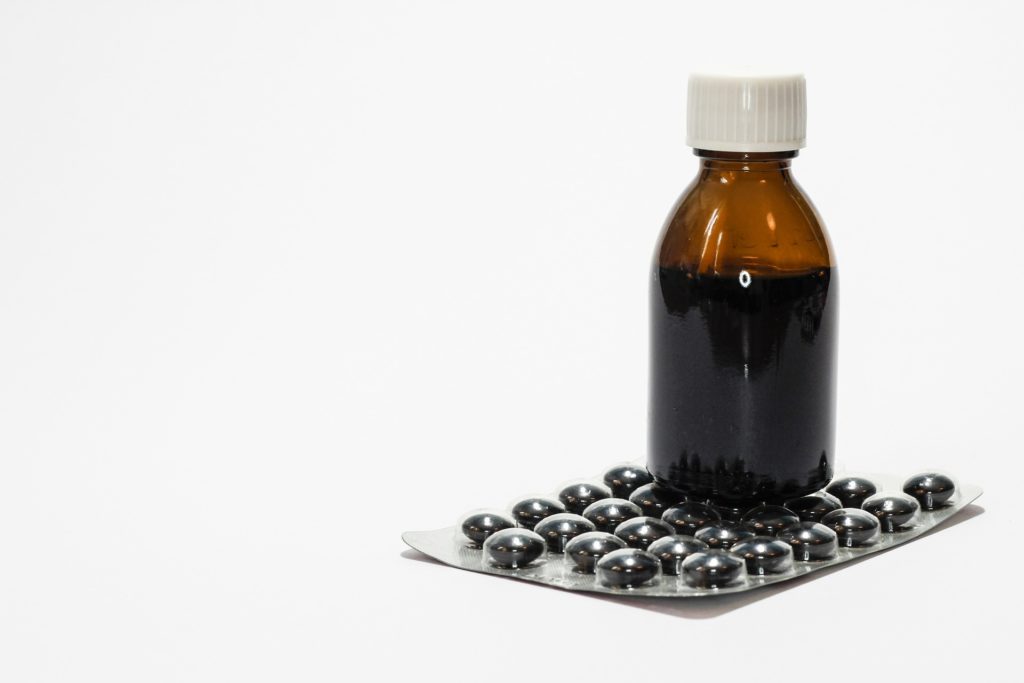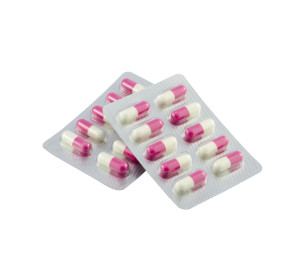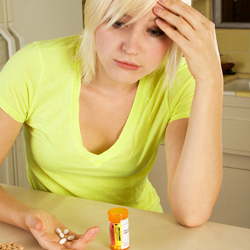
Abuse of over-the-counter cold medication and Cough Syrup Abuse is an increasing trend, particularly amongst adolescents and young adults. Extra-strength cough medicines containing dextromethorphan hydrobromide (DXM) are known for high rates of misuse, prompting changes in legislature by the FDA to require a prescription for this medication or to limit sales only to those of legal age.[1]
Recommended dosages of this medication are known to provide relief from coughing; however, increased dosages beyond therapeutic recommendations may lead to hallucinations and dissociative states, similar to that produced by other hallucinogenic drugs. [1, 2, 3]
Easy access leading to misuse
Abuse of DXM has increased 10-fold since 1999, with misuse increasing by approximately 50% each year.
Over-the-counter sales of this medication create a false perception of safety compared with illicit drugs; perhaps it is not well known that dextromethorphan is chemically similar to ketamine (a tranquilizer medication) and phencyclidine (also known as PCP), and may cause adverse effects like increased heart rate, high blood pressure, agitation, confusion, loss of voluntary coordinated muscle movement, or psychosis when consumed in high doses. [1]

Data provided by the California Poison Control System (CPCS) reported 1382 cases of DXM ingestion leading to acute intoxication over the period from 1999 – 2004; the total number of cases of DXM abuse over this time period is likely much higher!
The degree of intoxication is determined based on the number of symptoms experienced by the user; minor effects such as drowsiness or gastrointestinal symptoms typically resolve on their own and do not require medical attention. [1]
How much is too much?
Moderate effects produced by overuse of cough medication may include agitation, disorientation, hallucinations, low blood pressure, and possible seizures; these symptoms are typically not life-threatening but may require medical attention.
Major effects associated with excessive use include compromised cardiovascular and respiratory function, and prolonged or multiple seizures. Medical attention is required to stabilize the individual and prevent long-term damage to the heart, lungs, or brain. [1] Toxicity of this medication is dose-dependent, with larger doses related to increasingly dangerous side effects or death. [3]
The effects of DXM ingestion typically subside on their own, although medical attention is recommended when dosages exceed 7.5mg/kg to 10mg/kg- this would relate to ingestion of approximately 5 times the maximum recommended daily dose of 120mg for a 165-pound individual. [4]
typically subside on their own, although medical attention is recommended when dosages exceed 7.5mg/kg to 10mg/kg- this would relate to ingestion of approximately 5 times the maximum recommended daily dose of 120mg for a 165-pound individual. [4]
Side effects associated with dosages above 7.5mg/kg include disturbances to the auditory and visual centers (likely in the form of auditory or visual hallucinations), periods of semi-consciousness, partial dissociation, impaired cognitive ability, and episodes of mania and/or panic.
Doses exceeding 15 mg/kg are related to complete dissociation and impaired movement ability. [3]
Excessive ingestion of this medication is particularly dangerous when combined with other substances or medications; many OTC medications contain acetaminophen or pseudoephedrine, which can lead to long-term damage of the liver.
Co-ingestion of DXM with alcohol has been related to major outcomes involving serious pulmonary complications. [1]
Use of DXM-containing medications should also be used cautiously by those taking serotonin-containing medications, as DXM may act on serotonin receptors in the brain, leading to a dangerous condition known as serotonin syndrome.
Serotonin syndrome may be life-threatening, and requires emergency medical attention. [3]
Treatment
Treatment for acute intoxication from OTC cough medications may involve induced vomiting or pumping of the stomach; unfortunately, it is usually too late to perform either of these procedures by the time the individual has sought medical attention.
Fluid replacement and sedatives may be helpful as the effects of the drug wear off, severe cases may require use of activated charcoal, naloxone, or thiamine to diminish the effects of the drug. If the individual has a history of substance use problems, admittance to a treatment facility for detoxification may be necessary. [3]
 Few fatalities have been related to DXM use, but perhaps more problematic is by whom misuse of this drug takes place. As previously mentioned, misuse of OTC cough medicines occurs in higher rates among adolescents and young adults; early intervention may be key to reducing the need for treatment programs.
Few fatalities have been related to DXM use, but perhaps more problematic is by whom misuse of this drug takes place. As previously mentioned, misuse of OTC cough medicines occurs in higher rates among adolescents and young adults; early intervention may be key to reducing the need for treatment programs.
Education programs informing teens on the dangers of over-the-counter drugs may help lessen the number of emergency room visits related to cough medicine misuse. Creating awareness and knowledge about the dangers of mixing cough syrup with alcohol or other substances may also be helpful. [3]
Screening for those who do present to medical services with acute intoxication may be useful for identifying those at risk of misusing OTC medication again, or abusing multiple substances. Research suggests that abuse of other substances occurred in 20% of those cases reported by the CPCS. [1]
Additionally, misuse of OTC medications has been linked to increased depressive symptoms, increased likelihood of sensation seeking, and feelings of hopelessness. [2] Perhaps the drug is used as a temporary escape from reality, but long term use may result in tolerance and psychological withdrawal for chronic users. [3]
Just because this product is sold on the shelves of the pharmacy, it does not make it any less dangerous than other drugs or alcohol. When taken at the recommended dosage, there is little risk for dependence or adverse effects. [3]
It is important to always follow the instructions before taking any medication, and consult your physician or other health care professional prior to taking any new medication.
References:
1.Bryner, J. K., Wang, U. K., Hui, J. W., Bedodo, M., MacDougall, C., & Anderson, I. B. (2006). Dextromethorphan abuse in adolescence: An increasing trend: 1999–2004. Archives of Pediatrics and Adolescent Medicine, 160, 1217–1222.
2.Bentosh, E. G., Koester, S., Martin, A. M., Cejka, A., Luckman, D., & Jeffers, A. J. (2014). Intentional misuse of over-the-counter medications, mental health, and polysubstance use in young adults. Journal of Community Health, 39: 688-695.
3.Romanelli, F. & Smith, K. M. (2009). Dextromethorphan abuse: Clinical effects and management. Pharmacy Today, 15(3): 48-55.
4.Drugs.com. (2016). Dextromethorphan dosage. Retrieved from http://www.drugs.com/dosage/dextromethorphan.html
About the author:
 Stephanie Sands is currently pursuing a Bachelor of Science degree in Kinesiology, majoring in Mind Sciences. She completed an Honors Degree in Psychology in 2012, focusing on eating disorders and personality. She intends to combine her educational background into a holistic wellness practice, to strengthen mental health through a combination of counselling, physical activity, and nutrition coaching.
Stephanie Sands is currently pursuing a Bachelor of Science degree in Kinesiology, majoring in Mind Sciences. She completed an Honors Degree in Psychology in 2012, focusing on eating disorders and personality. She intends to combine her educational background into a holistic wellness practice, to strengthen mental health through a combination of counselling, physical activity, and nutrition coaching.
The opinions and views of our guest contributors are shared to provide a broad perspective of addictions. These are not necessarily the views of Addiction Hope, but an effort to offer discussion of various issues by different concerned individuals.
We at Addiction Hope understand that addictions result from a combination of environmental and genetic factors. If you or a loved one are suffering from an addiction, please know that there is hope for you, and seek immediate professional help.
Updated & Reviewed By: Jacquelyn Ekern, MS, LPC on March 14, 2016
